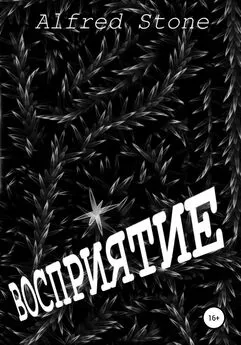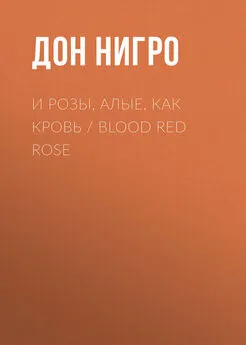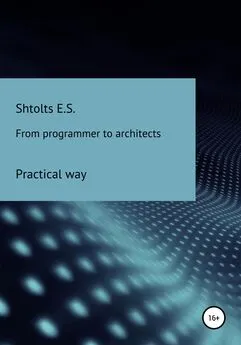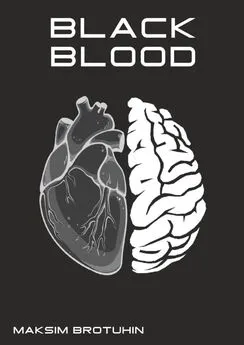Donna Leon - Blood from a stone
- Название:Blood from a stone
- Автор:
- Жанр:
- Издательство:неизвестно
- Год:2005
- ISBN:нет данных
- Рейтинг:
- Избранное:Добавить в избранное
-
Отзывы:
-
Ваша оценка:
Donna Leon - Blood from a stone краткое содержание
Blood from a stone - читать онлайн бесплатно полную версию (весь текст целиком)
Интервал:
Закладка:
Brunetti held his breath at the intimacy of the moment. In the years they had worked together, he had never doubted the technician’s loyalty, but this was the first time Brunetti had seen him express a feeling stronger than the detached irony with which he chronically viewed human activity. ‘Thank you for showing it to me,’ was all Brunetti could think of to say.
‘ Niente, niente ,’ Bocchese said and pulled a metal box from his pocket. When he opened it, Brunetti saw that the inside was thickly padded, top and bottom, with some sort of soft material. Bocchese slipped the plaque inside, closed the box, and slipped it into the inside pocket of his jacket.
‘She told you I wanted to see you?’ the technician asked.
‘Yes.’
‘Come and have a look,’ he said. He led Brunetti over to an examining table, where a number of photographs of fingerprints lay. Bocchese picked up one, flicked through the others with his forefinger, and pulled out another. He turned them over and checked what was written on the back, and then laid them side by side.
Brunetti saw the enlarged photographs of two single fingerprints. Like all prints, they looked identical to him. But he knew better than to say this to Bocchese.
‘Do you see it?’ Bocchese asked.
‘See what?’
‘That they’re identical,’ Bocchese said sharply, all trace of his former affability gone.
‘Yes,’ Brunetti said truthfully.
‘They’re both from that address in Castello,’ Bocchese explained.
‘Tell me more,’ Brunetti said.
Bocchese turned the photos over, as if to remind himself which was which, and then put them back where they had been. ‘Neither of these was in the apartment when you called and had Galli go over the first time, but both were there when he went back,’ he said, tapping his own finger against the photo. He pointed to the second photo, ‘And this was on the package of biscuits that Vianello brought me when you went back.’
‘They’re identical?’ Brunetti asked.
‘Same print, same hand,’ Bocchese said.
‘Same man, then,’ Brunetti said.
‘Unless he’s in the habit of lending it to someone else, it is,’ Bocchese said.
‘Where, exactly, was this one?’ Brunetti asked, tapping a finger against the first print.
Bocchese flipped it over again, studied the number and abbreviated words on the back, and said, ‘In the room on the top floor.’
‘Where, exactly?’
‘On the handle of the door, on the bottom side. It’s only a partial but it’s enough for me to make a match. I assume he wiped the handle off, only he didn’t wipe it all around, so he left the print,’ he said, again tapping at the photo.’
He pointed to the second photo. ‘As I told you, this was on the bag of biscuits. They were the only clear prints I found on the things Vianello brought me. The bag had a lot of grease on it. There were other smudges and partials, but nothing I could be sure about. Just this.’ He paused, then added, ‘I checked Galli’s report. He wiped things clean after he checked the place, so the print went on to the bag after you were there.’
‘Did you send them to Interpol?’ Brunetti asked.
‘Ah, Interpol,’ Bocchese repeated, voice filled with the despair peculiar to those forced to deal with international bureaucracies. ‘For what it’s worth, even those of us down here have heard the rumours about the Ministry of the Interior, so, just to be sure, I sent them to a friend of mine who works in the lab in the Ministry, and I asked him if he could perhaps deal with it privately.’ He paused a moment, then said, ‘I sent him those other prints — of the dead man.’
‘What does that mean, “privately”?’ Brunetti asked.
‘Well,’ Bocchese said, leaning back against the counter and folding his arms across his chest. ‘If it were an official request, it would take a week or two. But this way I should hear from my friend tomorrow or the next day. And no copy will go to anyone else at the Ministry of the Interior.’
At times Brunetti asked himself why he bothered with official police channels at all, if he had to rely almost exclusively on private connections and friendships in order to do his job. He wondered if it was like this in every country or every city. ‘You think there exists a place where the police are left alone to get on with their job?’ he asked Bocchese.
The technician appeared to treat this as a genuine question and gave it the consideration he thought it merited. Then he said, ‘Maybe, but only in places where the government wants the police really to function, regardless of who’s suspected or how important they are.’ He saw Brunetti’s expression, and added, with a smile, ‘But I still vote Rifondazione Comunista, so I’m bound to see it that way, I suppose.’
Brunetti thanked him for his comments and the information and went back to his office, marvelling that he had, in that brief visit, learned more about Bocchese than he had in more than a decade.
20
About an hour after Brunetti got back to his office, his phone rang. He answered with his name.
‘I asked that person,’ Sandrini said without introduction. ‘That is, I got him talking about that subject, and he said the job was given to people from Rome, who were sent up to do it.’
‘What about the guns? They have metal detectors at the airports now, you know,’ Brunetti said, irritated by Sandrini’s attempt to speak in code and hoping to irritate him, too. Getting a gun in Venice would be no problem to men with the right connections.
‘You ever hear about the train?’ Sandrini asked savagely. ‘It runs on metal tracks, goes back and forth between here and Rome. Goes choo choo choo.’
Ignoring his remark, Brunetti asked, ‘Is that all he said, that they were from Rome?’
‘What did you expect me to do, ask for their names and addresses, and maybe a confession to make things easier for you?’ Sandrini shouted, all thought of code or discretion tossed aside. ‘Of course that’s all he said. I’m not going to ask him about it directly, not after mentioning it once. He’d smell that a kilometre away.’
Brunetti had to admit Sandrini was right: there was no way he could ask his father-in-law about the killers without calling down suspicion on himself. He might have been able to talk his way out of the time with the prostitute: after all, some Mafiosi had survived the suspicion of adultery. But none of them, at least to Brunetti’s knowledge, had survived the suspicion of disloyalty.
‘Thank you,’ Brunetti said.
‘What?’ Sandrini demanded. ‘I risk my life and you say “thank you”.’ That was followed by a number of remarks calling into question the virtue of Brunetti’s mother as well as that of the Madonna, whereupon Brunetti thought it expedient to replace the receiver.
‘ Roma, Roma, Roma ,’ Brunetti whispered under his breath. In the past, he would have expected killers to come from farther south, but this was a multi-cultural world now, so hit-men could come from anywhere. He thought back over what Sandrini had said: they had been sent up from Rome to do the job. The fact that his father-in-law knew about it certainly implied that the killers were Mafia hit-men, but it did not necessarily mean that the Mafia had ordered the killing. He wondered if there were some pleasant freemasonry among hired killers and if, even when they were not involved, they knew what their fellow killers got up to, perhaps even sat around in small groups and speculated about how much their colleagues might have been paid for various jobs. The grotesqueness of this idea did not negate its possibility.
His phone rang again, and when he answered he was surprised to find himself speaking to his wife. ‘You never call me here,’ he said.
‘Almost never.’
‘All right, almost never. What is it?’
‘The university.’
‘The exams?’ he asked, certain that she had come upon some information about her colleagues in the Department of the Science of Law and had not been able to wait until that evening to tell him.
‘Exams?’ she asked, her confusion audible.
‘In the Science of Law Department,’ he said.
‘No, no, I don’t know anything about that. It’s about your black man.’
Though he was tempted to object that the black man was hardly his black man, Brunetti asked merely, ‘What about him?’
‘I did what you asked: asked my friend, and he mentioned someone he used to work with who’s a specialist in this sort of thing.’
‘What sort of thing?’ Brunetti asked.
‘Fetishes. He tells me this woman is the European expert on African fetishes.’ The fact that Paola made no comment on the strangeness of this discipline suggested to Brunetti that she found it a perfectly legitimate field of expertise, and that in its turn suggested that she was spending too much time among academics.
‘And?’
‘And I have her number in Geneva,’ Paola answered, ‘and you should call her and ask.’
‘Geneva?’ Brunetti asked.
‘Afraid of speaking French?’
‘About something as complicated as all of this, yes,’ he said.
‘Don’t worry,’ Paola said. ‘She’s Swiss.’
‘And that means?’
‘They speak everything,’ she said, gave him the number, and hung up.
So it turned out to be with Professor Winter: she spoke some Italian, good English and German, and, it seemed, the languages of the five African regions in which she did research. To his surprise, she displayed no curiosity about why the police were asking her to help identify a dead man, only asked Brunetti to describe the object he wanted identified.
‘It’s a kind of pattern, made of triangles,’ he said in English. ‘It’s on a carved wooden head, about five centimetres tall, that looks like it was broken off something, probably a statue. And on a man’s body.’
‘Where?’ she asked.
‘On his stomach.’
‘And the head: is it a man or a woman?’ she asked.
‘A woman, I think.’
‘You say you have this object?’
‘Yes,’ Brunetti said. ‘And there are photos,’ he added. ‘Of the body, as well.’
He waited for her to speak, but when she remained silent, he asked, ‘Is there any information you might give me, Professor, however tentative, from what I’ve told you?’
After a brief hesitation, she said, ‘Not until I see the photos. Anything I said now would just be speculation.’
Brunetti was struck by how much she sounded like the worst of Paola’s colleagues, the ones who saw information as something to be measured out and bestowed only on the deserving.
‘Excuse me,’ Professor Winter said, and her voice moved away from the phone as she spoke to someone in the room with her. After a moment, she returned and said, ‘Can you send me the photos?’
‘Yes.’
‘Good,’ she answered and gave him her email address, spelling it out. ‘Could they be sent to me soon?’ she asked.
‘I’d prefer to send you the actual photos,’ Brunetti said, giving no explanation. ‘If you give me the university address, I can post them to you today.’ He had Rizzardi’s photo of the mark on the man’s body, and he had already used a police Polaroid to take a photo of the head.
‘Ah,’ Professor Winter said. She gave him her address at the university and then added, ‘Perhaps things are done differently in Switzerland.’
‘Are you familiar with police work, Professor?’
‘Not particularly, no,’ she said neutrally. ‘I’ve been asked a few times to identify objects or people who have been killed, based on what I know about Africa.’
Читать дальшеИнтервал:
Закладка:
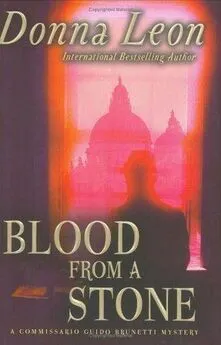
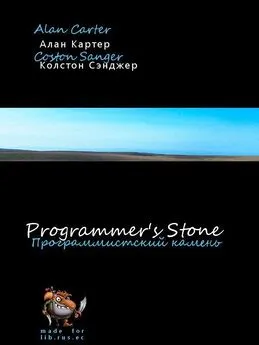
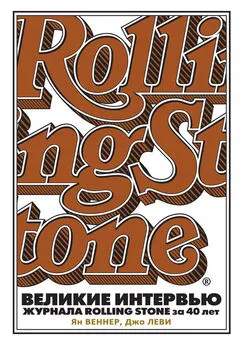
![О Генри - С высоты козел [From the Cabby's Seat]](/books/1083418/o-genri-s-vysoty-kozel-from-the-cabby-s-seat.webp)
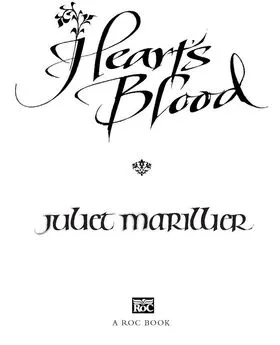
![Инна Владимирова - Blood diamond [litres самиздат]](/books/1149324/inna-vladimirova-blood-diamond-litres-samizdat.webp)
